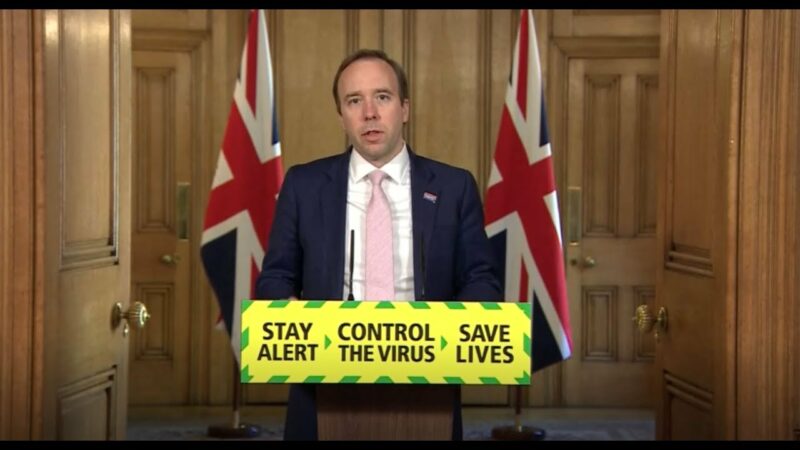'Ministers have eagerly embraced the idea of NEDs and enrol trusted soldiers to advance their ideological projects.'

Prem Sikka is an Emeritus Professor of Accounting at the University of Essex and the University of Sheffield, a Labour member of the House of Lords, and Contributing Editor at Left Foot Forward
The resignation of Matt Hancock as the health secretary for England has drawn attention to cosy arrangements between the government and elites who have been showered with non-executive directorships (NEDs) at government departments.
He personally appointed his lover as a non-exec at the Department of Health for a job which pays £20,000 for 15 days work, 14 times more than the salary of a junior nurse.
The concept of NEDs in the public sector is imported from the private sector. The key idea is that NEDs should offer an independent perspective on an organisation’s strategy and practices. However, in reality they are the chums of the executive directors and dare not bite the hand that feeds them. Scandals such as the banking crash, Carillion and BHS show that NEDs were the nodding donkeys who hardly ever objected to corporate excesses.
Ministers have eagerly embraced the idea of NEDs and enrol trusted soldiers to advance their ideological projects. The official position is that advertisements for NEDs appear on the government website and anyone can apply. Selection panels shortlist the applicants who are then invited for interviews before being appointed.
A nudge and a wink can also persuade individuals close to ministers to apply. However, the secretary of state can bypass all formalities and make direct appointments and there is no limit to the number of cronies that they can appoint as NEDs or advisers. This opens the doors for ministers to shower gifts upon a favoured few.
Currently, some 85 non-executive directors are in place at various government departments. The June 2021 report on the Committee on Standards in Public Life noted that:
“There is an increasing trend amongst ministers to appoint supporters or political allies as NEDs”.
The number directly appointed by any minister is not known. Their remuneration is not known and there is no information about how their performance is judged
The NEDs appointed by the government include a disproportionate number of party donors and cronies. Individuals linked with companies such as Amazon, BP and Veritas and the Vote Leave campaign have been favoured. Brothers of ministers and Tory peers have been appointed. Current non-executives also include the former Conservative vice-chairman Dominic Johnson who also happens to be a business partner of Jacob Rees-Mogg MP. Private equity operator Wol Kolade is a non-executive director of NHS Improvement and Baroness Dido Harding its chairman.
The presence of cronies opens the door for others. The Committee on Standards in Public Life noted that the appointment of political allies
“undermines the ability of NEDs to scrutinise the work of their departments, and has a knock-on effect on the appointments process elsewhere, as NEDs are often used on the assessment panels for other public and senior civil service appointments”.
Individuals from trade unions and civil society organisations can certainly provide an independent perspective on government policies and practices, but none have been appointed as NEDs.
The typical working requirement for a NED is about 15 days a year. It is doubtful that anyone can get to grips with the complexities of a government department and provide oversight in just 15 days spread over a year.
The real economic significance is that the NEDs appointed by ministers are the shock troopers of capitalism. They have inside access to policymakers and over the years have succeeded in making public services fit for outsourcing and privatisation, generating millions for themselves and their class through government contracts.
The cult of appointing hand-picked corporate grandees does not necessarily lead to good outcomes, or value for money. The appointment of Baroness Dido Harding, former chief executive of TalkTalk, to head up test and trace programme has hardly been a success. The UK spent £37bn on the programme, paying private sector advisers between £1,100 and £6,624 a day. A parliamentary committee concluded that it made no measurable difference on the progress of the coronavirus pandemic,
In 2010, Prime Minister David Cameron appointed billionaire Sir Philip Green to review government spending and advise on efficiencies. The efficiencies remained elusive. In 2016, BHS, Sir Philip’s flagship business collapsed and he was severely criticised by parliamentary committees, which raises questions about the wisdom of parachuting corporate grandees to government departments.
Over the years, courts have concluded that a number of tax avoidance schemes sold by PricewaterhouseCoopers, Deloitte, KPMG and Ernst & Young are unlawful. The government’s response is to appoint partners from the same firms to the board of HMRC. By a coincidence, neither HMRC nor the government has investigated or prosecuted any of the big accounting firms for selling unlawful tax avoidance schemes. Partners from the same firms have been seconded to HM Treasury and they draft tax laws. They then advise corporations on how to exploit loopholes in laws that they helped to draft.
Non-executive director appointments in government departments have become another way of handing ministerial favours to a select few. They provided the illusion on independent invigilation but have become vehicles for privatisation, outsourcing and destruction of public services. The system is abused and lacks accountability and needs to be regulated.
Left Foot Forward doesn't have the backing of big business or billionaires. We rely on the kind and generous support of ordinary people like you.
You can support hard-hitting journalism that holds the right to account, provides a forum for debate among progressives, and covers the stories the rest of the media ignore. Donate today.



